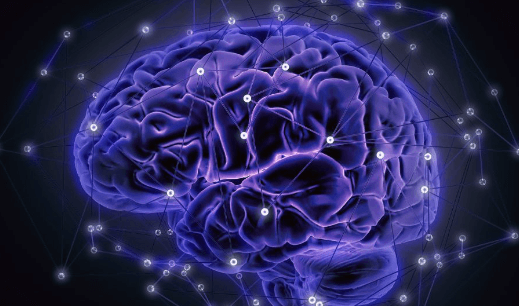How Does CBD Affect the Brain?

In recent years, cannabidiol, commonly known as CBD, has gained immense popularity as a natural remedy for various health issues. Its therapeutic properties have sparked interest in how CBD affects the brain and influences our mental well-being. This article delves into the scientific aspects of CBD’s interaction with the brain and explores its potential benefits for brain health.
How CBD Interacts with the Brain
In its most basic form, CBD communicates with the brain through the endocannabinoid system (ECS). The ECS is an intricate system of receptors and neurotransmitters that is present in every part of the body, including the brain. It is essential for controlling a number of processes, including mood, pain perception, hunger, and immunological response.
When CBD is ingested, it interacts with the ECS’s receptors, especially the CB1 and CB2 receptors, to indirectly affect it. While CB2 receptors are more prevalent in peripheral organs and immune cells, CB1 receptors are mostly found in the brain and central nervous system. CBD may affect a number of brain activities by modifying the activation of these receptors.
One of CBD’s well-known impacts on the brain is its capacity to lessen stress and anxiety. CBD may help regulate mood and emotions by interacting with serotonin receptors, which fosters a sensation of serenity and relaxation.
Furthermore, interest in CBD’s potential uses for neurological diseases has been inspired by its neuroprotective qualities. According to studies, CBD shows promise in treating illnesses including epilepsy and multiple sclerosis by helping to prevent inflammation and damage to brain cells.
Additionally, CBD may modify how pain is perceived by affecting the brain’s pain receptors, offering a possible alternate or supplementary method of treating pain.
While the study of how CBD interacts with the brain is still in its infancy, it offers an intriguing field of inquiry with exciting potential for medicinal uses. Prior to introducing CBD into your wellness regimen, you should, as with any supplement or therapy, speak with a healthcare provider to establish its safety and effectiveness.
Neurotransmitter Regulation
CBD has shown to influence various neurotransmitters in the brain, impacting mood and emotions. It can boost serotonin levels, promoting a sense of well-being. Additionally, CBD enhances the effects of anandamide, a neurotransmitter often referred to as the “bliss molecule.” Moreover, CBD’s interaction with dopamine receptors may contribute to its potential anti-addictive properties.
Anti-Inflammatory Properties
Neuroinflammation can be detrimental to brain health and may contribute to neurodegenerative disorders. CBD has attracted interest as a possible therapy for many illnesses due to its anti-inflammatory characteristics. By reducing inflammation in the brain, CBD may offer neuroprotective effects and slow down the progression of certain brain-related ailments.
Anxiety and Stress Reduction
Anxiety disorders affect millions worldwide, and CBD has emerged as a promising solution. The substance interacts with brain receptors that control fear and anxiety reactions. CBD’s anxiolytic properties may offer relief to those struggling with anxiety and stress-related disorders, promoting a calmer state of mind. If you’re seeking to alleviate anxiety and stress, consider using CBD syrups as your primary remedy.
With its calming effects, CBD syrup offers a natural and convenient solution to find relief from the burdens of anxiety, providing a tranquil escape from life’s challenges.
Neuroprotective Effects
Studies suggest that CBD might play a pivotal role in safeguarding brain cells from damage and degeneration. This potential neuroprotective effect has implications for various conditions, including traumatic brain injuries and neurodegenerative diseases like Alzheimer’s and Parkinson’s.
Sleep Regulation
Sleep is essential for brain health and cognitive function. By encouraging relaxation and enhancing sleep quality, CBD has shown potential in treating sleep problems. Those struggling with insomnia may find CBD supplementation beneficial in achieving a restful night’s sleep.
Addiction and Substance Abuse
CBD’s influence on brain receptors involved in addiction pathways has raised curiosity about its potential role in addiction recovery. While more research is needed, CBD has shown promise in reducing drug-seeking behavior and mitigating the adverse effects of substance withdrawal.
Cognitive Function and Memory
Emerging evidence suggests that CBD may impact cognitive function positively. It might enhance memory and cognitive abilities, making it a subject of interest for research on age-related cognitive decline and neurodegenerative disorders.
Side Effects and Safety
Like any therapeutic agent, CBD may have side effects, albeit usually mild. These might include diarrhea, changes in appetite, or weariness. To ensure safe consumption, it’s essential to use CBD products from reputable sources and follow proper dosing guidelines.
Drug Interactions
CBD may interfere with the metabolism and effectiveness of several medicines. Before introducing CBD into your regimen if you are using other drugs, it is vital to speak with a healthcare provider.
Dosage and Administration
Finding the right CBD dosage is crucial for experiencing its potential benefits. The right dose may vary based on the patient and the particular issue being treated. CBD comes in various forms, such as oils, capsules, and edibles, providing multiple options for administration.
Medicated CBD and Mental Health Disorders
Medicated CBD potential as a complementary therapy for mental health disorders is an area of active research. Researchers have looked into how it might help people with depression, post-traumatic stress disorder (PTSD), and anxiety disorders.
The Future of CBD Research
As interest in CBD’s effects on the brain continues to grow, so does the body of research exploring its potential applications. Ongoing studies are investigating CBD’s efficacy for various neurological conditions, paving the way for potential breakthroughs in the future.
Conclusion
In conclusion, CBD’s impact on the brain holds significant promise for various brain-related conditions. From its potential as a neuroprotective agent to its anxiolytic and anti-inflammatory properties, CBD offers a multifaceted approach to promoting brain health. However, further study is required to properly comprehend its processes and realize its full medicinal benefits.
